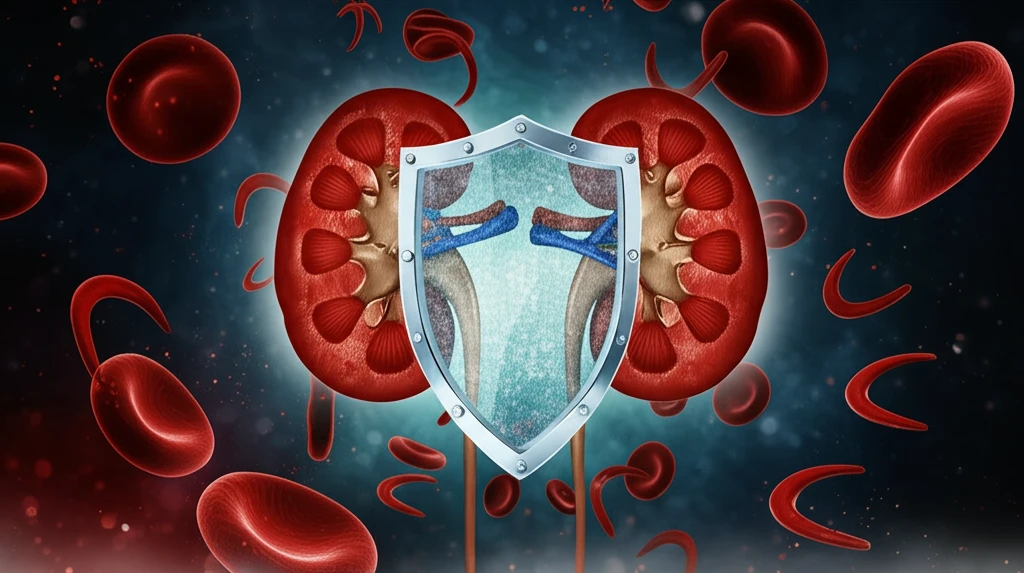
Sickle Cell Anemia: Are Your Child's Kidneys at Risk?
"A closer look at proteinuria in children with sickle cell anemia and how early screening can protect their kidney health."
Sickle cell disease (SCD) is a genetic condition affecting millions worldwide, particularly in Nigeria. While many know SCD for its impact on blood cells, it can also significantly affect the kidneys, leading to a condition called sickle cell nephropathy (SCN).
One of the early signs of SCN is persistent proteinuria, which means having too much protein in the urine. Think of it like this: your kidneys are supposed to filter out waste and keep the good stuff, like protein, in your body. Proteinuria indicates that this filtration system isn't working as it should, potentially leading to kidney damage over time.
A recent study conducted in Ilorin, Nigeria, sheds light on the prevalence of proteinuria among children with SCD. This research highlights the need for regular screening to catch this condition early and start treatments that can protect the kidneys.
What is Proteinuria and Why Does it Matter in Sickle Cell Anemia?

Proteinuria occurs when the kidneys, which filter waste products and maintain essential substances in the blood, start leaking protein into the urine. Normally, the kidneys are very efficient at keeping proteins in the bloodstream, where they're needed for building and repairing tissues.
- Early Detection is Key: Regular screening for proteinuria can help identify kidney issues before they become severe.
- Simple Screening Methods: A simple urine test, called a dipstick urinalysis, can detect the presence of protein in the urine.
- Treatment Options: If proteinuria is detected early, medications can help reduce protein in the urine and protect kidney function.
Protecting Your Child's Kidney Health
If your child has sickle cell anemia, talk to your doctor about regular kidney screenings. Early detection and appropriate treatment can make a significant difference in protecting their long-term kidney health and overall well-being.
